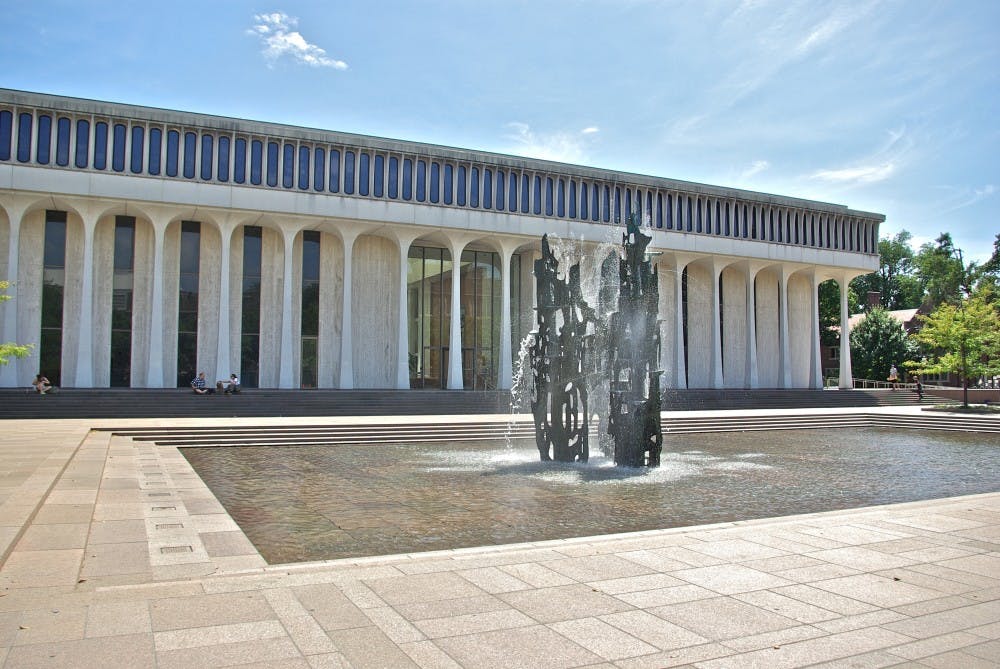Every student on campus, whether it be in first-year writing seminar or during the senior thesis grind, has had experience with entering the “scholarly conversation.” Entire databases on the Princeton University Library website — not to mention the millions of physical books in the libraries themselves — are devoted to countless scholarly works. Most of these journal articles, books, and encyclopedias are the result of extended research and careful analysis from experts who have studied these various subjects for decades. Much of the existing scholarly work — as well as the millions of works both Princeton students and professors will continue to contribute — however, is unread, unused, and essentially useless. This is a bleak sentence for the prospects of academia and the wealth of information and possibility it holds.
As I sat writing my D3, a paper that holds fond memories for few students, I noticed a significant disconnect between what countless scholars were saying in their journal articles and books and what policy-makers and world-leaders were doing to solve world crises.
My paper details the nature of the many individuals who are attracted to terrorist organizations like ISIS. Contrary to the common notion that these individuals join or are forced to join largely because of poverty and lack of education, most of the members who constitute these groups are relatively well-educated and are situated in higher socioeconomic strata. Countless political analysts and scholars and professors have shown this to be true — even Princeton professors like Claude Berrebi have discussed this reality.
However, neither the statements of government leaders nor the policies put into effect reflect the work and research done by scholars.
Government leaders around the world have denounced poverty as the reason for the growth and thriving of Islamic terrorism: President Bush, President Obama, British Prime Minister Tony Blair, former Israeli Prime Minister Shimon Peres, and many more have explicitly stated these sentiments. These statements have led to policy proposals from leaders; for example, the President of Serbia, in addition to many other leaders in a 2017 UN conference, proposed targeting poverty as a hotbed for terrorism.
These policy recommendations conflict with the prevalent scholarly notion that targeting poverty can actually aid the growth of extremism instead of hindering it, even if it is admittedly crucial to settling some of the turmoil in the Middle East. Although such political statements are by no means always or even frequently representative of the policies actually put into place, their words are nevertheless misleading for the general populace because they spread inaccurate portraits of the reality of the situation and can spark public support for the wrong cause.
Still, far too many enacted counterterrorism policies actually do reflect the misleading words of politicians and not the scholarly consensus. For example, according to the Department of Homeland Security, there have been several anti-poverty initiatives to provide economic security that were based on the assumption that poverty breeds terrorism. Clearly, there is a serious disconnect between scholarly findings and the policy decisions — which have real and lasting consequences — that government leaders execute. Without the advice of experts and individuals who have studied these issues and their roots for decades, world leaders may end up making faulty or uneducated decisions when it comes to monumental issues like counterterrorism.
One article notes this discrepancy, saying that “many of the world's most talented thinkers may be university professors, but sadly most of them are not shaping today's public debates or influencing policies.” One of the “highest impact” journals concerning water and the various crises surrounding its accessibility and cleanliness, contains scholarly pieces from people who have studied the issue extensively. India, whose water crisis has left over 163 million people without access to clean water, needs the help of experts desperately; yet, there are only four subscribers to this journal in the entire country. Furthermore, the water minister of India and many of the officials working under him were entirely unaware of the journal’s existence, yet were making policy decisions.

Clearly, this is a problem. What is the use of spending years contributing to an ever-growing mountain of scholarly work if it will never be read or used in actual policy? Perhaps one step would be to include more experts in policy-making and in the decision-making of government officials. If officials are appointed or elected to a certain position, it ought to be mandatory that they, at the very least, be familiar with scholarly material commensurate with their office.
This basic familiarity would hopefully pave the way for more informed decisions that would more effectively solve problems and provide tangible benefit — and perhaps it would reinvigorate the scholarly incentive of discouraged professors and academics who have contributed monumental research to no avail in the policy sphere.
Emma Treadway is a first-year from Amelia, Ohio. She can be reached at emmalt@princeton.edu.









